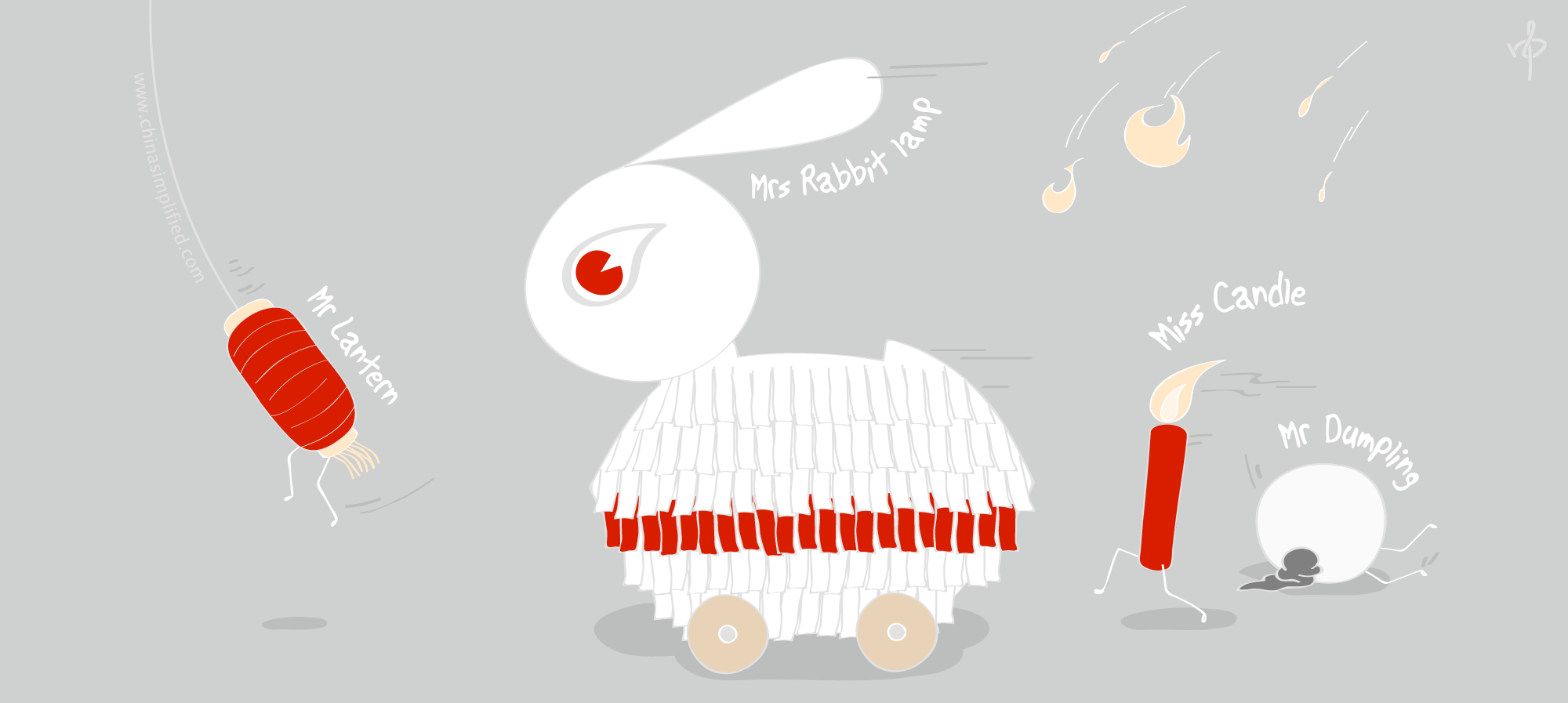International Women’s Day on the 8th of March is not a thousand year old Chinese tradition. (Surprise!) It originated in the United States in 1908 as a socialist movement calling for women’s suffrage and equal rights. For China Simplified, it’s an opportunity to tell a story about a fascinating woman who led China during one of its most challenging periods in history.
She was merely one of thousands waiting for the emperor to select after a mindless glance. She was asked to stay, at age 17.
She was then one of hundreds waiting for the emperor to favor or forget. She was favored and gave birth to the emperor’s only surviving son, at age 21.
She was one of two widows to be empowered with royal seals. With all odds against her, she fought hard and turned the chops into symbols of real power, at age 27.
She outlived both emperors behind whom she ruled for 48 years. The last imperial dynasty reached its end three years after she died, at age 73.
Empress Dowager Cixi ascending into a position of power in 1861 was both unanticipated and unprecedented, the result of a shrewd power play aligning herself with two influential princes to seize power away from the Eight Regents intended by the late Xianfeng Emperor to advise the incoming 5-year-old Tongzhi Emperor, Cixi’s son. It was a bold, all-or-nothing gamble that positioned her “behind the curtain” to control the lives of roughly one third of the planet.
This was a terrible era for China: two Opium Wars had forced open treaty ports and caused losses of territory, including a barren island named Hong Kong. Foreign armies burned and looted Cixi’s beloved Summer Palace, with some of the most spectacular art and architecture on the planet. And the Taiping Rebellion started in South China by a man claiming to be the reincarnation of Jesus Christ was raging northward with no signs of respite. Cixi and her advisors were fighting for survival, facing one crisis after another.
“Britain is one of the world’s most powerful countries. But it doesn’t owe it all to Queen Victoria herself. The Parliament was helpful and supportive…but look at me who has to manage 400 million people. I’m the one who has to decide everything.”
– Empress Dowager Cixi
Although the downturn of the Qing Dynasty started before Cixi’s tenure, historians have assigned her much of the blame. She squandered state money on self-indulgent projects, presided over the signing of unfair treaties at the hands of rapacious foreign generals, and encouraged disastrous rioting during the Boxer Rebellion, hoping in vain they might drive out the foreign armies. She was also part of the Manchu ruling minority, and born female at a time when females were not supposed to talk politics.
Cixi’s intentions towards reform were sincere. She appointed Han ministers into key positions and did her best to guide the country towards modernity. Despite being forced to operate through eunuchs and others by proxy, she realized some noteworthy accomplishments:
- Promoted reforms in the military, commerce and legal systems.
- Approved the Self-strengthening Movement to introduce western science and technology into China.
- Reformed the education system, and approved schools exclusively for women.
- Tried to end foot-binding, a nearly thousand year old practice.
- Proposed a Constitutional Monarchy for China’s political system.
Even when Cixi torpedoed the Hundred Day’s Reforms led by the Guangxu Emperor in 1898, a move for which she’s widely vilified, she did so to avoid having the emperor – her stepson – implicated in the failed assassination attempt on her life. Another example of her having to make tough choices to salvage something from a bad situation.
“Women hold up half the sky.”
– Mao Zedong
Was it her ambition to be the utmost ruler? Or all along, if she didn’t act, she would be acted upon? And if she could redo everything, would she do it all differently? There’s a chance she wouldn’t even take the offer.
Speaking on female leadership before she passed away, incredibly, Cixi is recorded as saying: “In the future, women should not be allowed to interfere with politics, a possibility that should be strictly prohibited.”
Far from perfect, a woman feared and admired and despised by many, we pay tribute to Cixi on this International Women’s Day.
“In politics, if you want anything said, ask a man. If you want anything done, ask a woman.”
– Margaret Thatcher










This book. It’s quite good, if you’re interested in the subject. Apologies that I don’t have the exact page number. https://www.goodreads.com/book/show/17857634-empress-dowager-cixi?
Where is the evidence or source that Cixi said “Britain is one of the world’s most powerful countries. But it doesn’t owe it all to Queen Victoria herself. The Parliament was helpful and supportive…but look at me who has to manage 400 million people. I’m the one who has to decide everything”?